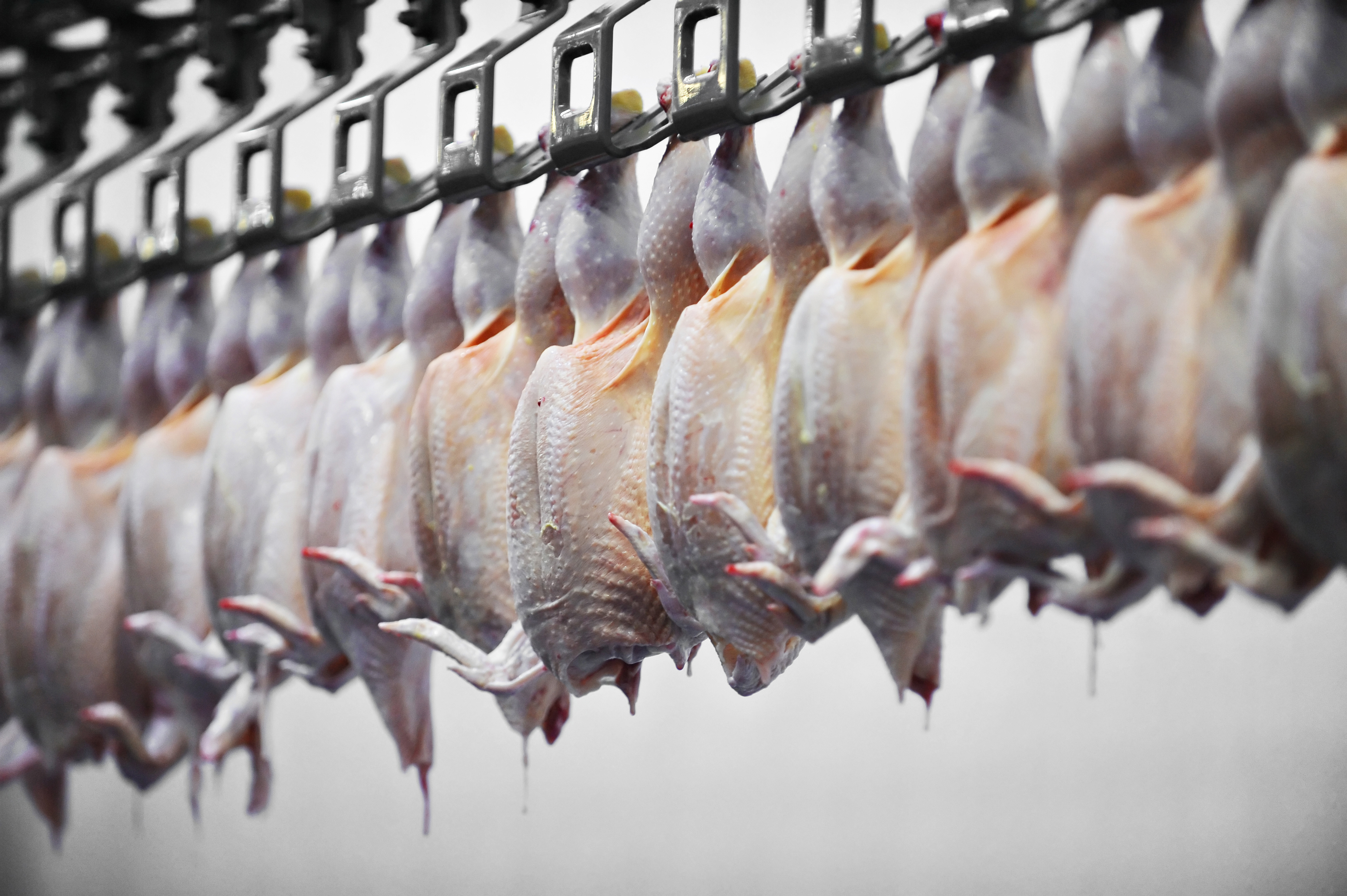Do the state and the communities really have to manage slaughterhouses? This is in essence the question posed by the Court of Auditors in one of the sections of its annual report. The observation made is severe: public slaughterhouses, in addition to processing an anecdotal part of the meat consumed in France, benefit only a few farmers and cost the taxpayer dear.
Read also: Abuses of police unions pinned by the Court of Auditors
So what is a public slaughterhouse? It is an establishment in which farmers have a choice: in particular they can pay only the price of slaughter and recover the meat afterwards to sell it at their price. In a private establishment, this option does not exist: the slaughterhouse buys the meat from the farmer and then resells it as it pleases.
Public slaughterhouses have often been built to avoid illegal slaughter and to structure supply chains. However, for several decades now, private slaughterhouses have taken care of the overwhelming majority of animals intended for consumption. This raises the question of the relevance of the existence of public slaughterhouses, costly for taxpayers.
Read also: Breton airports cost taxpayers dear
The new consumption habits do not play in favor of slaughterhouses either: the consumption of butchery meat has decreased by almost 20% in the last 12 years. The number of butchers is declining (they were 25,000 in 2000 and were only 18,000 in 2018). Maintaining slaughterhouses therefore no longer truly obeys economic rationality but is part of a territorial network that allows smallholders to survive.
“ In fact, many public abattoirs have been maintained to allow small farms in mixed farming (in particular, small dairy or sheep farms) to obtain the revenue necessary to maintain them. These slaughterhouses of modest size would have a "socio-economic" function on their territory which would justify the support of communities ", writes the Court of Auditors. These operations are mainly located in the south of France, in particular in New Aquitaine, Occitanie and Auvergne-Rhône-Alpes. That is to say, where this “agro-pastoral” agriculture, based on small or medium-sized farms, exists.
The fragility of this situation is felt in the management of public slaughterhouses. The Court of Auditors thus criticizes “ the strong dependence of public slaughterhouses on a few customers (less than three on average) representing more than 70% of their activity and whose sustainability of orders is never guaranteed, the latter not hesitating to transport their animals to other slaughterhouses according to the cost of the requested fee ”. In short, " public slaughterhouses have few prospects in a difficult environment ," asserts the Court.
A “very degraded” financial situation
Unfavorable economic conditions and poor management have plunged many of these establishments into economic difficulties. " 55 public slaughterhouses (more than two thirds) have an operating deficit and negative cash flow, including 22 which combine these weaknesses with negative cash flow, for a cumulative amount of 8.27 million euros ", details the Court of Auditors. However, these public slaughterhouses are managed by local authorities, which often have to pay for loans to operate these establishments. They also pay balance grants for their activity, amounting to several hundred thousand euros. The slaughterhouse of Champagnole, in the Jura, even received 1.8 million subsidies between 2008 and 2014.
Read also: The Court of Auditors advocates the generalization of the pharmaceutical file
It is therefore time to consider new avenues, according to the Court. Mobile slaughter could thus be suitable for the dual requirement of local and animal-friendly slaughter. The management of these slaughterhouses could also be entrusted to cooperatives. So many radical changes that are necessary after years of wait-and-see. The Court of Auditors calls on these public services to reform since its report in 1990, that is to say thirty years ago.

